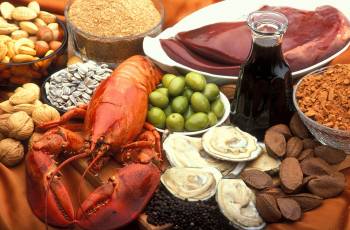Low Purine Diet For Gout
 Purine is a substance that is found in common everyday foods that we consume. Purines are broken down by the body and changed to uric acid, which is normally excreted in the urine. However, people with gout tend to have a buildup of uric acid in the blood. High concentrations of uric acid can cause crystals to precipitate in the joints, causing the typical symptoms of an acute gout attack. Thus the importance of maintaining a low-purine diet for those who are suffering from gout.
Purine is a substance that is found in common everyday foods that we consume. Purines are broken down by the body and changed to uric acid, which is normally excreted in the urine. However, people with gout tend to have a buildup of uric acid in the blood. High concentrations of uric acid can cause crystals to precipitate in the joints, causing the typical symptoms of an acute gout attack. Thus the importance of maintaining a low-purine diet for those who are suffering from gout.
Low Purine Foods:
Low purine foods may be eaten without worry of triggering a gout attack (that is not to say that exactly the healthiest of foods to be eating). For instance, refined carbohydrates such as white bread and rice are low in purines. But they have a high glycaemic index and can increase ones risk of getting diabetes and metabolic syndrome. On the other hand, wholemeal breads tend to be healthier with a lower glycaemic index, but they contain moderate amounts of purines which can trigger a gout attack.
The following are a list of low purine foods:
• Eggs, nuts, and peanut butter
• Low-fat milk, cheese and yogurt
• Soups made without meat extract or broth
• Low purine containing vegetables include kailan, cabbage, red bell pepper and beetroot.
• All fruit and fruit juices
• Refined carbohydrates eg. white bread, pasta, white rice, cake
• Water, soda, tea, coffee, and cocoa
• Sugar, sweets, and jelly
• Fat and oil
Medium Purine Foods:
These may be eaten in small quantities when your gout is under control, but should be avoided completely during a gout flare.
• Red Meats
• Crab, lobster and oysters
• Asparagus, cauliflower
• Mushrooms
• Oats, oatmeal, wheat germ and bran
High Purine Foods:
Abstain from this list completely if possible.
• Certain fish/shellfish: Salmon, herring, mackerel, prawn, anchovies (ikan bilis), sardines, fish roe, cockles, mussels, scallops
• Beans and legumes: Peanuts, bean cake, moon cake
• All internal organ meats, such as brains, heart, kidney, liver
• Meat extracts: Gravies and sauces made with meat, chicken essence, bak kut teh,
• Certain fruit and vegetables: Spinach, peas, strawberries (& strawberry jam), durian
• Alcohol, especially beer.
What Else Should I Do?
1. Increase fluid intake. Drink 8 to 16 cups of liquid each day, at least half of which should be water. Fluids will help your body flush out excess uric acid and prevent the development of uric acid kidney stones.
2. Maintain a healthy weight. Weight loss can help decrease the amount of stress on your joints.
Further Reading
The article above is meant to provide general information and does not replace a doctor's consultation.
Please see your doctor for professional advice.
